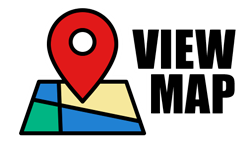Getting Started
|
What is BMX? BMX Racing Facts: Statistics have proven that BMX racing is one of the safest of all sports today. Part of this is due to the mandatory safety requirements. All Riders MUST wear long sleeves, long pants and a full faced helmet are recommended. BMX is an excellent individual and family orientated sport. Races are organized into 20” girl’s classes and boys classes, and then subdivided into age groups and skill levels. The age groups range from 5 & under classes to 41 & older for boys and 28 & over for girls. Within these age groups are three skill levels: Novice, Intermediate and Expert. All riders start as Novices and must work up to the more advanced levels by winning races. A Novice must move up to the Intermediate class after they have 6 wins in the Novice class. An Intermediate must move up to the Expert class after they have 25 wins as an Intermediate. There is also competition in the Cruiser class for boys and girls. The age groups for the boy Cruiser class are 8 & under to 61 & older and girl cruiser from 10 & under to 51 & over. There are also pro classes. Pro class pays money for winning and riders can also tryout for the Olympic team. How Much Will It Cost?
What Does My Bike Need to Be Track Ready? What Type of Clothing Do I Need? 4. We recommend that you do not start off with an expensive racing uniform until you are sure that you are ready to race. Riders grow fast and you may be able to get some used items at our “yard sales”. |
|
|
|
How to Get Started Racing BMX: Cape Coral BMX is a dirt track approximately 1,000 feet long, with banked turns and jumps of all shapes and sizes. Actually, the first thing you need to do is find the sign-up / registration building. The building is painted green and is the only building located on the track premise. It is there that you'll need to fill out an USA-BMX application and sign up to race. First-time racers are able to have access to the track for practice. First time fee is FREE. Before you get up on the starting gate, it is suggested that first you closely watch the riders go around the track. Pay attention to their body motion over jumps (using arms and legs as shock absorbers) and note where riders are pedaling and when they are coasting. Take it slow on your first few laps. Remember, you are brand new to this and those fast, expert racers started off just like you. Take time to learn the track - know which obstacles are coming up and how to take it smoothly. Often, the difference in the beginner class is who is smoothest around the course rather than quickest THE STARTING GATE:
PRACTICE: Racing BMX is easy to get started and the USA-BMX) has made it inexpensive to begin. Here are a few answers to frequently asked questions.
A simple checklist to make sure your bike is USA-BMX safe & race ready include:
Next, there's the checklist of what you will need to wear in order to practice and race:
Links for additional information on BMX. |






Social